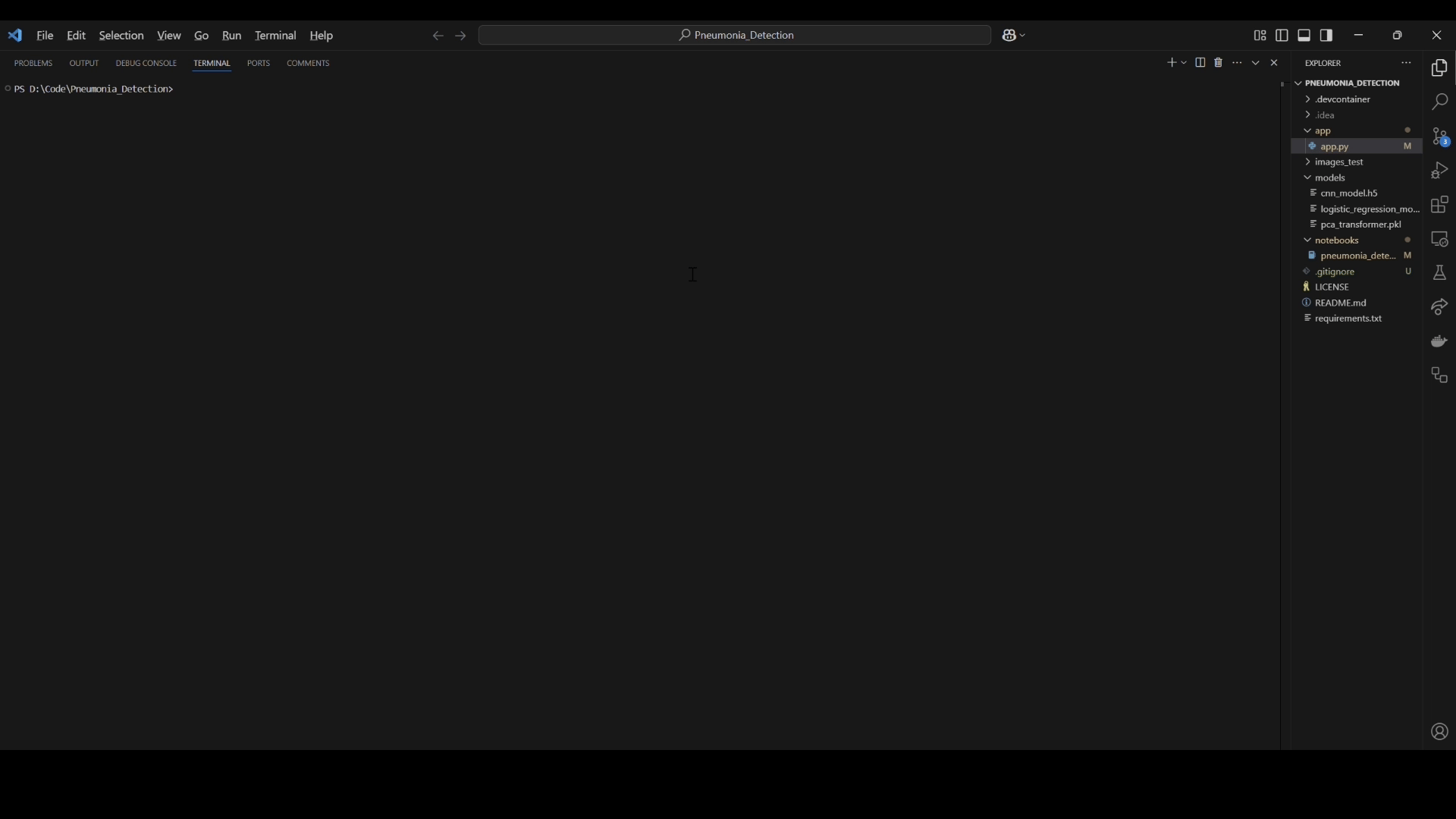Branchify generates an ASCII folder structure from any directory. Works for Python>=3.8
Documentation : Check out the documentation here: https://pypi.org/project/branchify/
✅ Command-line Interface (CLI) & Python API
✅ Smart Ignoring of common directories and file types
✅ Explicit Inclusions and Exclusions for directories or file patterns
✅ Configurable File Limit (Depth) of the tree
pip install branchifybranchifybranchify --path my_projectbranchify --ignore node_modules venv --ignore-patterns '*.wav'OR
branchify --i node_modules venv -ip '*.wav'branchify --include-dir logs --include-pattern '*.json'OR
branchify -ind logs -inp '*.json'branchify --depth 5OR
branchify -d 5branchify --output structure.txtOR
branchify -o structure.txtbranchify --updatefrom branchify.generator import FolderStructureGenerator
# Define customization options for the generator
ignores = {
'directories': ['node_modules', 'venv', '.git', '__pycache__'], # Custom directories to ignore
'ignore_patterns': ['*.log', '*.tmp', '*.bak'], # Custom file patterns to ignore
}
includes = {
'directories': ['src', 'assets'], # Directories to explicitly include
'patterns': ['*.py', '*.js'], # File patterns to explicitly include
}
# Custom file limit
file_limit = 25
# Initialize the FolderStructureGenerator with custom parameters
generator = FolderStructureGenerator(
root_dir="/path/to/root", # Set the root directory to start from
ignores=ignores, # Pass the custom ignores
includes=includes, # Pass the custom includes
)
# Override the default file limit
generator.file_limit = file_limit
# Generate and display the folder structure
print(generator.generate())The FolderStructureGenerator class comes with predefined settings that ignore certain files and directories when generating the folder structure. These settings can be customized by passing specific arguments during instantiation, but the default ignores are as follows:
The following directories are ignored by default:
node_modules: A directory commonly found in JavaScript projects, containing installed packages.venv: A directory for Python virtual environments, which typically contains installed dependencies..git: The Git version control directory, containing internal Git configurations and histories.__pycache__: A directory that stores Python bytecode files.env: Another directory often used for Python virtual environments..vscode: The Visual Studio Code workspace settings folder..idea: The directory used by JetBrains IDEs (such as IntelliJ IDEA, PyCharm) for project-specific settings..svn: The Subversion version control directory, used for managing source code versions..DS_Store: A system file used by macOS to store folder-specific settings, typically hidden..mypy_cache: A directory used by MyPy (a static type checker for Python) to store cached information..pytest_cache: A directory used by pytest to cache results of tests to speed up repeated test runs.__snapshots__: A directory often used for storing test snapshots in JavaScript or other testing frameworks.
The following file patterns are ignored by default:
*.pyc: Compiled Python files.*.swpand*.swo: Temporary swap files created by text editors (like Vim).*.toml: TOML files, typically used for configuration (e.g.,pyproject.toml).*.lock: Lock files, used by package managers (e.g.,package-lock.json,Pipfile.lock).*.log: Log files, often generated for debugging or runtime information.*.yaml: YAML files, often used for configuration (e.g.,docker-compose.yaml).*.rst: ReStructuredText files, used for documentation.*.ini: Configuration files using the INI format.*.cfg: Another configuration file type.*.out: Output files, often generated during builds or testing.*.gitand*.gitignore: Git-related files and directories used for version control management.
The file_limit is a setting within the FolderStructureGenerator class that restricts the number of files shown in the generated folder structure for a given directory. It can be modified within the cli with the --depth flag.
By default, the file_limit is set to 15. This means that if a directory contains more than 15 files, only the first 15 files will be displayed, and the rest will be represented by an ellipsis (...) at the end of the list.
This limit is applied as follows:
- If a directory contains 15 or fewer files, all files will be shown.
- If a directory contains more than 15 files, only the first 15 will be displayed, and the rest will be omitted to keep the output concise.
Pneumonia_Detection/
├── .devcontainer/
│ └── devcontainer.json
├── app/
│ └── app.py
├── images_test/
│ ├── IM-0368-0001.jpeg
│ ├── NORMAL2-IM-0401-0001.jpeg
│ ├── NORMAL2-IM-0775-0001.jpeg
│ ├── NORMAL2-IM-1319-0001.jpeg
│ ├── NORMAL2-IM-1326-0001.jpeg
│ ├── person1712_bacteria_4529.jpeg
│ ├── person1729_bacteria_4557.jpeg
│ ├── person466_bacteria_1987.jpeg
│ ├── person630_bacteria_2512.jpeg
│ └── person896_virus_1548.jpeg
├── models/
│ ├── cnn_model.h5
│ ├── logistic_regression_model.pkl
│ └── pca_transformer.pkl
├── notebooks/
│ └── pneumonia_detection.ipynb
├── LICENSE
├── README.md
└── requirements.txtThis project is licensed under the BSD License
If you'd like to contribute to Branchify, please open an issue or a pull request at the repository, and if you find it helpful, do consider starring the repository!
